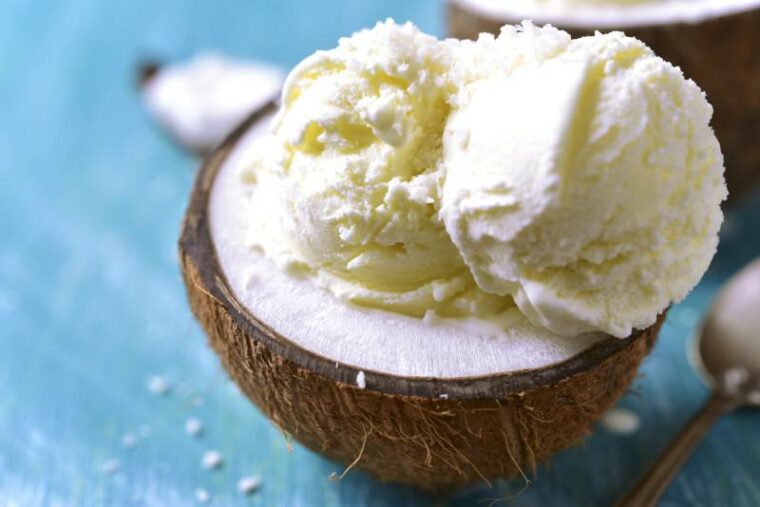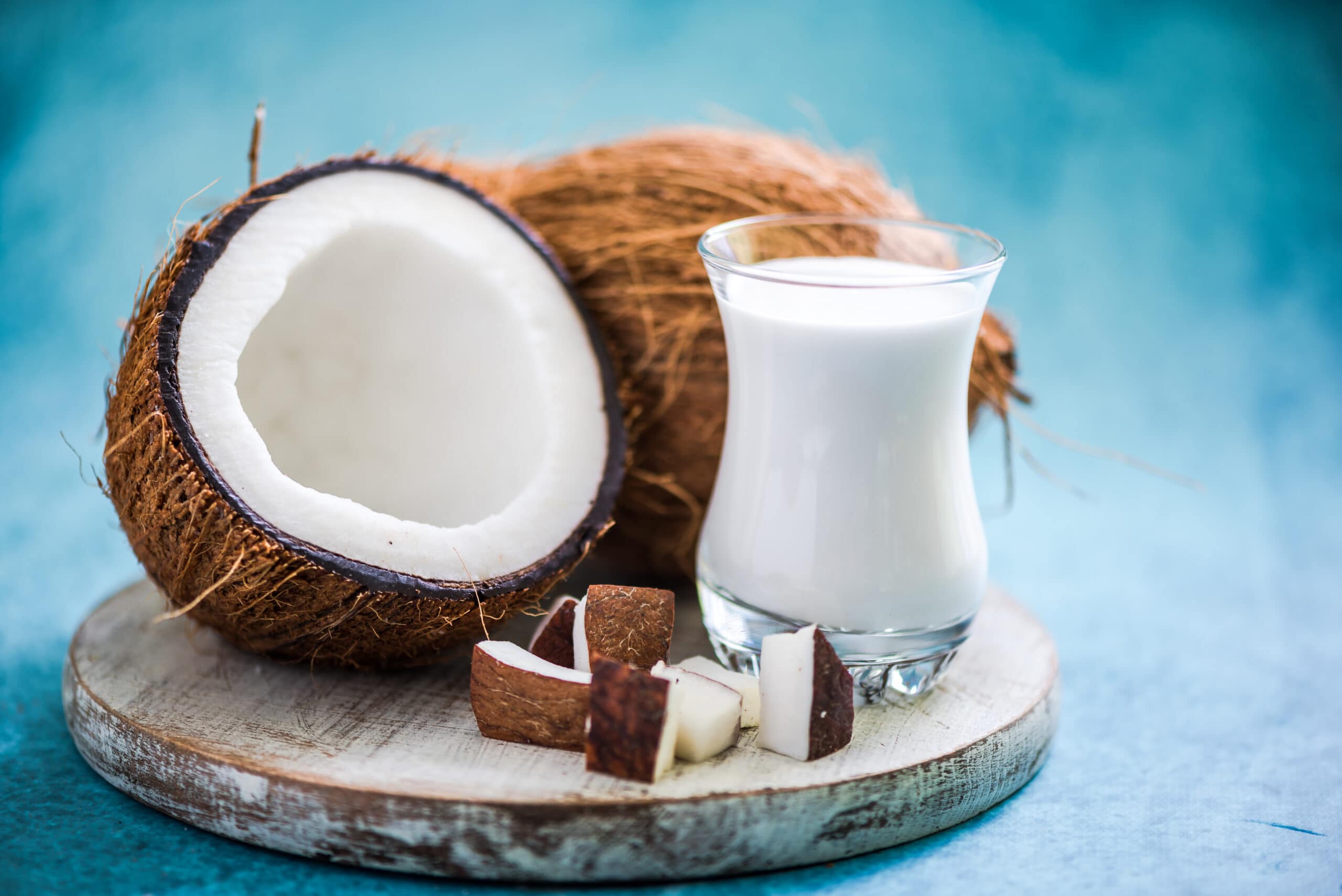
Click to Skip Ahead
Coconut ice cream is the epitome of an enjoyable tropical treat on a hot summer’s day. Whether licking it off a cone or enjoying small mouthfuls from a cup, the experience can be refreshing when the temperatures are high. This may tempt you into offering your furry friend some, especially when you notice your dog’s pining eyes staring at you while you enjoy yours. But can dogs eat coconut ice cream?
Coconut ice cream is not considered toxic for dogs, but that doesn’t mean it’s healthy or should be offered as a part of their regular diet. If your dog happens to lick your empty bowl clean, it will likely do no harm, but it includes some ingredients that make it unsuitable to be served regularly or in sizable portions. In this article, we’ll discuss why you shouldn’t serve coconut ice cream to your dog.
Is Coconut Ice Cream Bad for Dogs?
As a dog owner, you may know that a few human foods are better left out of your dog’s diet, and coconut ice cream is undoubtedly one of them. If your dog happens to lick the drops of coconut ice cream that fell to the floor or licked the remnants of your ice cream bowl, there is likely no need to panic, and your dog should be okay. However, if you want to give your pet a bowl of coconut ice cream, we’ll explain why you shouldn’t.

Sugar
As you are likely aware, ice cream is loaded with sugar, including coconut ice cream. Foods high in sugar are bad for your dog since they can lead to weight gain and obesity. Sadly, obesity and weight gain can also lead to health issues like diabetes and arthritis.
On that note, if your dog already suffers from diabetes, coconut ice cream should never be offered. Coconut ice cream is also high in fat, which can lead to health issues such as pancreatitis if large portions are consumed frequently.
Although many “sugar-free” options are available, they should be avoided since the replacement for sugar is often xylitol. Xylitol is considered toxic for dogs, even in small amounts. Additionally, some coconut ice cream is made with coconut syrup or flavoring, which is also very high in sugar and other sugar substitutes that are not good for your dog.
Lactose Intolerance
Most adult canines are lactose-intolerant, meaning they can’t properly digest milk and milk products, and coconut ice cream is made primarily of milk and cream. Consuming too much dairy from ice cream can lead to an upset stomach, diarrhea, vomiting, abdominal discomfort or pain, and bloating.

Allergies
Some dogs can also experience allergies to certain foods like dairy. Allergies from dairy are typically a reaction to the protein found in milk products, which can lead to itchy and uncomfortable skin rashes, ear infections, vomiting, and diarrhea.
What If My Dog Ate Coconut Ice Cream?
If your dog ingested a small amount of coconut ice cream by having a lick or two, your dog will likely be fine. However, if you enjoy sugar-free coconut ice cream that contains xylitol, we recommend calling your vet immediately no matter how much they ate.
If your dog has ingested a sizable portion of coconut ice cream, the best thing to do is keep a close eye on them. Monitor your dog closely for any signs of allergic reaction or stomach issues. If you notice any difference in your dog’s health, you should make an appointment to see your veterinarian.

Frequent Asked Questions
Can Dogs Eat Vanilla Ice Cream?
Vanilla ice cream contains all of the same ingredients that your dog should avoid, and it’s not any safer than serving coconut ice cream.
Can Dogs Eat Coconut?
Yes! Dogs can eat coconut, and it potentially has some health benefits, similar to coconut oil, such as providing antioxidants, immune system support, digestive support, and improving skin and coat health. However, coconut should only be served as an occasional treat in small amounts because even though it is non-toxic, it contains medium-chain triglycerides, which can lead to bloating and an upset stomach.
Can Dogs Eat Coconut Ice Cream Made from Coconut Cream?
Dogs can have coconut cream if it doesn’t contain sugar, xylitol, or additional fats and additives. Therefore, dogs can enjoy coconut ice cream made with coconut cream as long as it’s served occasionally in small amounts.
Conclusion
Coconut ice cream is not considered toxic to dogs but should not be served as a treat. A small portion is unlikely to harm your dog, but eating it frequently can cause weight gain and other health issues. Coconut ice cream is high in sugar and is made primarily from dairy products, which are not good for your dog. Always consult your veterinarian before offering your dog new food or treats.
Featured Image Credit: Liliya Kandrashevich, Shutterstock









